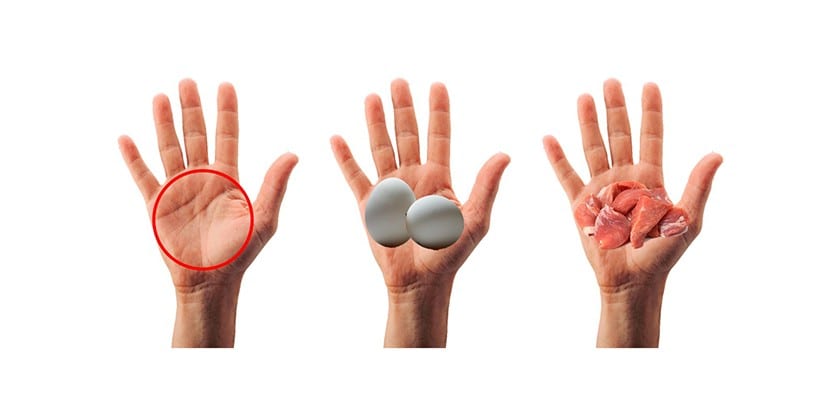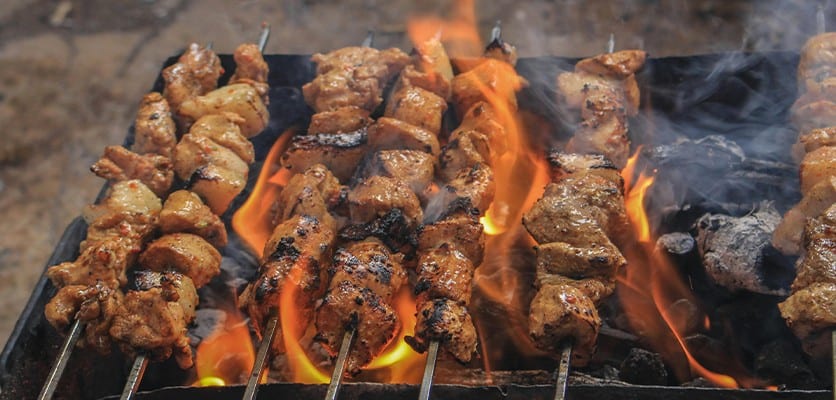Ramadan isn’t just about fasting; it’s a chance to enhance your nutrition and maintain your energy levels. You might be surprised to learn that protein can be your secret weapon for maintaining muscle mass and hunger during this time. If you’re someone who works out, wants to lose weight, or build muscles during Ramadan, getting enough protein isn’t just important—it’s everything. Keep reading to find tips that can help you stay on track with your fitness goals, even during Ramadan
Common Protein Mistakes to Avoid During Ramadan
Protein helps reduce levels of the hunger hormone called ghrelin. It also helps increase feelings of fullness. One common mistake people make during Ramadan is skipping Sahur. This habit reduces your daily protein intake and can lead to hunger later in the day. Another mistake is relying solely on one type of protein source. A mix of both animal and plant-based protein ensures better variety and nutrient balance. Additionally, focusing only on protein without balancing other macronutrients like carbohydrates and healthy fats can affect your energy levels and overall well-being.

How Much Protein Do You Need?
Your protein needs depend on various factors such as age, gender, activity level, and health goals. As a general guideline, the Malaysia Recommended Nutrient Intake (RNI) 2017 suggests consuming one gram of protein per kilogram of body weight. For instance, if you weigh 70 kg, your daily protein intake should be around 70 g.
Good sources of protein include fish, poultry, eggs, meat, legumes, and dairy. One serving, equivalent to a palm-sized portion, contains approximately 14 g of protein. This means that to meet a 70 g protein requirement, you would need about five servings.
However, some protein is also obtained from carbohydrate-based foods, so adjustments should be made accordingly. For individuals weighing 70 kg or more, it is recommended to reduce one serving (one palm size), while those weighing less than 70 kg should reduce their intake by half a serving (half a palm size). As a result, if you weigh 70 kg, your final intake should be around four servings, or four palm-sized portions, of protein sources.
Does Exercise Increase Protein Needs?
Definitely! If you’re exercising regularly, 30–60 minutes of exercise per day, your protein needs increase to support muscle recovery and growth. Aim for an extra 1-2 servings of protein based on your activity level. During Moreh, try a protein smoothie with milk, Greek yogurt and banana to help meet your protein needs. While protein supplements like whey or plant-based powders can be useful, they should be used if you’re unable to meet your protein needs through whole food sources.
Best Protein Foods for Muscle Preservation
A balanced intake of both plant and animal proteins helps preserve muscle and keeps you full and satisfied throughout the fasting period. Animal-based proteins like chicken, fish, and eggs provide all the essential amino acids needed for muscle building and repair. Meanwhile, plant- based proteins like beans, lentils, and tofu are rich in fiber and other beneficial nutrients like antioxidants, supporting overall health. Combining both ensures a broader range of nutrients. For example, a delicious meal could include ikan bakar with sambal tempeh and tofu for added plant protein.
Best Plant-Based Protein Sources for Vegans and Lactose-Intolerant Individuals
For those avoiding dairy, excellent plant-based protein sources include soy-based foods such as tofu, tempeh, and edamame, as well as legumes like chickpeas, lentils, and black beans. Nuts and seeds, including almonds, sunflower seeds, and pumpkin seeds, are also great options. Quinoa, a complete protein grain, provides another nutritious alternative. Additionally, plant-based protein shakes made from pea or soy protein can be a convenient way to increase protein intake. Even without dairy, these protein-rich foods can help you meet your protein needs without compromising on nutrition.
Are there any recent advancements or tools in preventative medicine that men should be aware of?
- 50% at Sahur (2 palm-sized servings for a 70kg person)
- 50% at Iftar (2 palm-sized servings for a 70kg person)
- 40% at Sahur (1.5 palm-sized servings)
- 50% at Iftar (2 palm-sized servings)
- 10% at Moreh (½ palm-sized serving)
Sample Menu (4 palm-sized servings for a 70kg person)
Here’s a simple, protein-packed sample menu to get you through Sahur, Iftar, and Moreh while keeping your energy up.
Meal | Menu |
|---|---|
Sahur |
|
Iftar |
|
Moreh |
|
At Iftar, we often visit the Ramadan bazaar, where traditional dishes like ayam percik, ayam panggang, ikan bakar, satay, kebabs, and tauhu sumbat offer excellent sources of protein. When enjoying your favorite foods, opt for lean proteins to reduce fat intake, moderate sauces to limit sodium intake, and avoid charred crusts, which may contain acrylamide, a compound linked to health risks, cancer in animal studies.

Quick High-Protein Meal Ideas during Ramadhan
To make common Iftar meals higher in protein, simple modifications can be made. Adding shredded chicken to bubur lambuk or including an extra egg, such as telur dadar, when having rice are easy ways to boost protein intake. For Sahur, quick and easy-to-prepare meals can help meet protein needs while being light on the stomach. Some options include boiled eggs served with slices of whole wheat bread, peanut butter, and a glass of milk, or overnight oats topped with Greek yogurt, milk, and chia seeds. During Moreh, protein-rich snacks can help curb hunger, such as tauhu sumbat, eggs in toast with milk, a handful of nuts and seeds, or Greek yogurt with dates.
Protein-Rich Foods to Avoid for Better Digestion
After fasting for more than 12 hours, your digestive system may need extra care. Some protein-rich foods can be harder to digest and may cause discomfort. Deep-fried meats, for example, are high in fat and can lead to bloating, making you feel sluggish after Iftar. Processed meats, such as sausages and nuggets, are loaded with sodium and preservatives, which can contribute to dehydration. Also, over consumption of processed foods has been associated with heart attack, stroke, diabetes, and cancer.
Legumes like beans, lentils, and chickpeas are excellent plant-based protein sources, but they can cause gas if not prepared properly. Soaking them before cooking can make digestion easier. If you’re sensitive to dairy, consuming too much milk or cheese may lead to bloating or discomfort.
Can You Eat Too Much Protein at Once
Your body can only handle so much protein at a time. Eating too much in one meal might leave you feeling bloated or uncomfortable. Plus, your body absorbs protein gradually, so overloading won’t give you extra benefits, it just pushes out other important nutrients like carbs and healthy fats, which keep you energized. The best approach? Spread your protein throughout Sahur, Iftar, and Moreh to keep your digestion good, your muscles strong, and your energy steady. Balance is key, I believe you can work this out. Selamat Berpuasa!
This article first appeared in HealthToday, 15 March 2025.
Share:
Was this article helpful?
Share:
Was this article helpful?
Health Packages
Elevate your health with tailored health packages at Columbia Asia Hospital. Take charge of your health journey today.
Pink October 2025
From
RM80
HLA Policyholders Promo: Influenza Vaccination
RM65
Find Out MorePink October 2024
From
RM80
AIA Policyholders Self-pay Benefits
Columbia Asia 30th Anniversary Promotion “Maternity & Baby”
12.12 CheckJer Health Package
RM140
Find Out More
